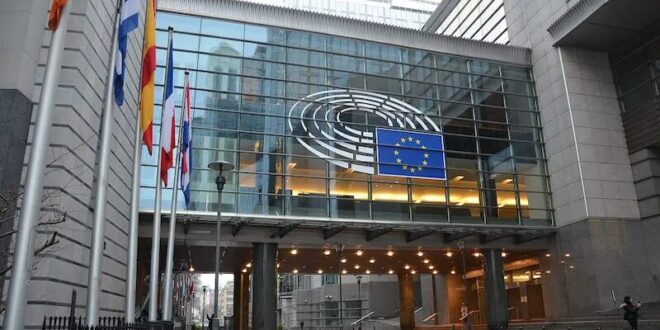My previous article was about the potential impacts of the outcomes of the European Parliament elections, held in early June, on energy and climate policies on this continent.
The results were seen as a new victory for the far-right, which has long been on the rise in Europe. Although centre-right and left-wing parties won the most votes, the gains in the number of seats for far-right groups were significant.
On the other hand, the results in Germany, France and Italy, which are seen as the dynamos of the European Union (EU), had caused alarm bells to ring louder in these countries. In France, Marine Le Pen’s far-right National Rally had garnered the highest votes, while in Germany, the Alternative for Germany had become the second most voted party. In Italy, right-wing nationalist Prime Minister Meloni had further strengthened her position with the high number of votes she received.
European far-right parties, which share many common traits such as xenophobia, economic protectionism, or opposition to the EU, are known to be skeptical of global warming and climate change, and also have strong objections to EU environmental and climate policies. For these parties, climate issues are generally not seen as a priority area.
Therefore, the general elections held in United Kingdom and France this month, immediately after the European Parliament elections, could have been decisive for the future of these policies. Similar results in these two elections could mean that this continent would abandon its environmental and climate leadership.
However, this time different results came from both countries.
The Labour Party won the general election in the UK at the beginning of July by a wide margin. The party’s leader, Keir Starmer, became the new prime minister. The Conservative Party, which had been in power in the country since 2010, was crushed in the election.
Immediately afterwards, parliamentary elections were held in France and the real surprise came from there. The early general election, which was held in two rounds, resulted in the victory of the New Popular Front, which was formed by four parties on the left of the political spectrum (La France Insoumise, the Socialist Party, the French Communist Party, and the Greens). Marine Le Pen’s far-right party, on the other hand, failed to generate the expected explosion of votes.
Considering that Le Pen planned to scrap the Green Deal at the first opportunity, believing it weakened France’s competitiveness, we can say that the union has averted the danger for now. However, if, as shown by many public opinion polls, the far right had come to power, the European Green Deal could have faced the risk of being paralyzed.
On the other hand, many of the energy and climate statements of the left-wing alliance that received the highest votes are in line with EU policies: They too are aiming for carbon neutrality by 2050 and a 55 percent reduction in greenhouse gas emissions by 2030 compared to 1990 levels. They want to prioritize green investments and propose establishing an urgent European Pact for climate. But they also aim to fully nationalize France’s giant energy company, Edf, create a public energy center, make the part of energy defined as a basic need free for everyone, and gradually phase out nuclear power plants. Of course, these last points I have mentioned mean a headache for the established order in France.
Although the left-wing alliance received the highest number of votes in the French elections, no party or alliance achieved the majority necessary to form a government. Therefore, the country’s new government has not yet been determined. However, it will not be easy for Macron, whose own party is part of an electoral alliance that has promised to build fourteen new nuclear reactors, to give the task of forming a government to the left-wing alliance.
Having severed its ties with the EU, the UK is much more relaxed on this matter. It is hard to say that the Labour Party, which formed the government, has a profoundly different perspective on energy or climate issues compared to the Conservative Party it replaced. Unlike the left-wing parties in France, the Labour Party does not have the same concerns about nationalization or providing free energy. Instead, they want to turn the UK into a clean energy superpower through public-private partnerships. To achieve this, the public company they plan to establish, called Great British Energy, will focus on renewable investments and will strive to double onshore wind, triple solar energy and quadruple offshore wind by 2030.
Perhaps their most ambitious goal relates to net zero: They want to reach its carbon neutrality target by 2030 rather than 2050. On the other hand, the Labour Party, which finds the Conservatives too slow on nuclear energy, aims to rapidly build new nuclear power plants, including Small Modular Reactors, and extend the lifespans of existing ones. They have no plans to exit oil and gas production in the North Sea; they will not issue new licences for exploration, but they will use the existing ones to the fullest.
As a result, it is not really possible to say that there is a broad consensus on energy and climate policies in Europe. The European Green Deal, which ordinary citizens increasingly complain about due to its costs, is turning into a battleground. Between the climate skepticism of the far right on the one hand and the objections of the socialist left due to its market-oriented solutions such as emissions trading or carbon pricing on the other, we have to wait and see how long the deal can survive in its current form.
 Eurasia Press & News
Eurasia Press & News




